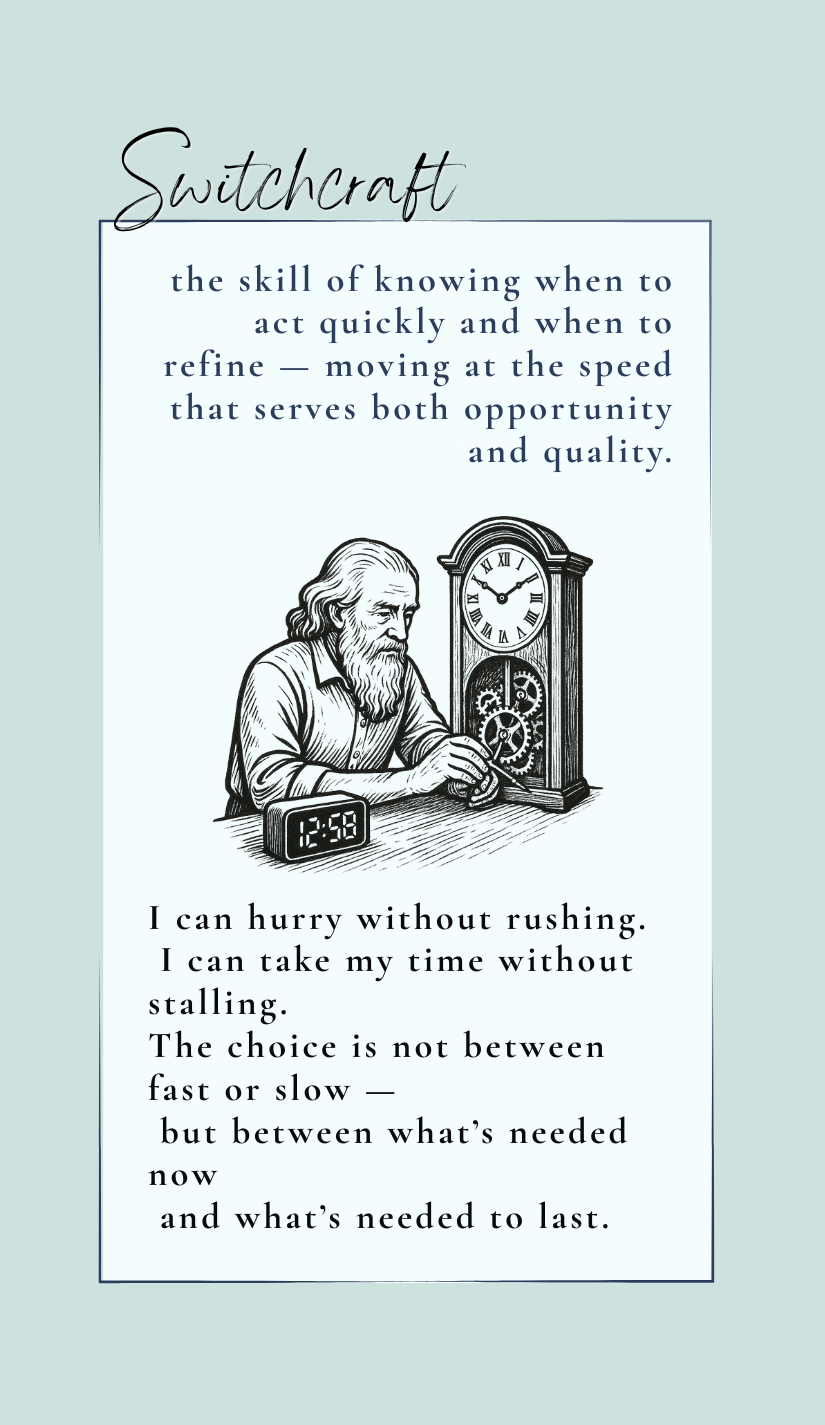The Tension Between Urgency and Excellence
Sometimes your system holds two different relationships with time — one that says safety comes from moving quickly before the opportunity disappears, another that says safety comes from perfecting before revealing.
Flight carries the wisdom of momentum, the intelligence of knowing when swift action can capture fleeting opportunities or escape closing windows. It says: Move while you can. Timing matters. Sometimes safety lives in acting before the moment passes.
Perfectionism holds the wisdom of quality, the intelligence of knowing when taking time to refine can prevent criticism and create lasting value. It says: Polish until it shines. Standards matter. Sometimes safety lives in being beyond reproach before you show your work.
Both responses learned their strategies when you needed exactly that kind of protection. Flight learned that hesitation could cost important opportunities or leave you trapped in difficult situations. Perfectionism learned that premature action could lead to shame, criticism, or having to redo everything later.
When they both activate, it can feel like being caught between two different kinds of pressure — the urgency of now and the demand for flawlessness, the fear of missing out and the fear of being judged for imperfection.
This tension isn't about being impulsive or obsessive. It's your system trying to honor both timeliness and quality in a world that often demands both simultaneously.
Gentle Reflection
What if the conflict between rushing and refining isn't about poor time management, but about your nervous system's sophisticated understanding that both speed and quality can create different kinds of safety?
Flight isn't about being careless — it's about recognizing that done can be better than perfect when timing is crucial. Perfectionism isn't about being obsessive — it's about caring deeply that your work represents you well.
Your system learned that sometimes safety requires swift movement to catch opportunities or avoid problems, and sometimes it requires patient refinement to ensure your efforts create the impact you intend.
The goal isn't to always rush or always perfect, but to develop the discernment to know when "good enough and timely" serves you better than "perfect and late."
Journal Prompts
When do you notice the urge to move quickly or act immediately? What is that response trying to catch or avoid?
When do you feel the pull to keep refining and perfecting? What is that impulse trying to ensure or prevent?
What would strategic timing look like — knowing when to prioritize speed and when to prioritize polish?
Integration Practice
"The Archer's Choice"
Imagine yourself as an archer with a bow and arrow.
Sometimes you need to shoot quickly when the target appears — trusting your instincts and natural aim.
Sometimes you have time to carefully adjust your stance, breathe deeply, and refine your aim for maximum accuracy.
Practice asking: "Is this a quick-shot moment or a careful-aim moment?"
Feel the difference between urgent action and patient preparation in your body.
Let yourself trust that both responses serve different purposes and both can hit their mark.
Closing Thought
You are not impulsive for choosing speed when timing matters. You are strategic.
You are not obsessive for choosing quality when excellence serves. You are conscientious.
The dance between rushing and refining is not a productivity problem — it's timing intelligence.
Sometimes good enough and on time serves better than perfect and late. Sometimes careful preparation serves better than quick action. Trust your ability to read each situation and choose accordingly.
